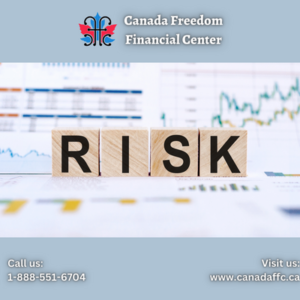Understanding the Risks of Debt Consolidation Loans: A Comprehensive Guide
 In the fast-paced world of today, handling money can be difficult, and a lot of people struggle with several debts. Loans for debt consolidation frequently show up as an appealing option, promising to ease repayment and lessen financial strain. Although debt consolidation loans have their advantages, it is important to be aware of the hazards involved before implementing this kind of financial planning.
In the fast-paced world of today, handling money can be difficult, and a lot of people struggle with several debts. Loans for debt consolidation frequently show up as an appealing option, promising to ease repayment and lessen financial strain. Although debt consolidation loans have their advantages, it is important to be aware of the hazards involved before implementing this kind of financial planning.
Consolidating debt is obtaining a single loan to settle several outstanding bills. This loan is a desirable choice for people looking for financial relief because it usually has an interest rate that is lower than the average rate on the existing debts. The goal is to consolidate many debts into a single one, simplifying monthly payments and maybe reducing the total interest paid over time.
Debt consolidation loans come with risks.
1. Undisclosed Charges & Fees:
The existence of unstated expenses and fees is a frequent hazard associated with debt consolidation loans. Even while the interest rate on the new loan might be cheaper, borrowers might still have to pay origination fees, application fees, and other costs, which could cancel out any savings that were expected. To completely comprehend the financial ramifications, it is imperative that you carefully review the terms and conditions of the loan agreement.
2. Extended Time for Repayment:
Loans for debt consolidation frequently have lengthier payback schedules. This can result in lower monthly payments, but it also means paying interest over a longer period of time, which could lead to higher interest rates altogether. The immediate relief against the long-term financial consequences of an extended repayment time must be considered by borrowers.
3. Dangers of Taking on Additional Debt:
The core source of financial issues is not eliminated by debt consolidation. After receiving a debt consolidation loan, some people could experience a false feeling of financial stability and fall prey to the temptation of taking on more debt. This may exacerbate the financial circumstances and result in a debt cycle that is harder to escape.
4. Affect on Credit Rating:
Applying for a new loan—like a debt consolidation loan—may cause the borrower’s credit score to temporarily decline. Furthermore, the borrower’s rating may be further harmed if they default on the new aggregated loan. People should carefully assess the potential consequences on their credit score before choosing to consolidate their debt.
5. Different Interest Rates:
Variable interest rates are a feature of some debt consolidation loans; this means that the interest rate may change depending on the state of the market. Even while these loans might have lower interest rates at first, borrowers run the risk of future interest rate increases, which could lead to greater total repayment costs.
6. Loans that are Secured vs Unsecured:
There are two types of debt consolidation loans: secured and unsecured. Collateral, like a house or car, is used to secure loans; if the borrower defaults, they run the danger of losing the item. Even because they don’t need collateral, unsecured loans can have higher interest rates. A person’s risk tolerance and specific financial situation must be carefully taken into account when deciding between secured and unsecured loans.
7. Unable to Modify Money Routines:
Consolidating debt won’t make your financial problems go away. Even after combining their debts, people risk returning to a perilous financial condition if they fail to address the root causes of their debt accumulation, such as overspending or a lack of budgeting.
Conclusion:
Even while debt consolidation loans can be an effective tool for managing several debts, it’s important to proceed cautiously and have a full grasp of the dangers involved. Before agreeing to a debt consolidation plan, people should carefully assess their financial condition, look into other choices, and extensively investigate possible lenders. Borrowers can make wise financial decisions that result in long-term stability and debt-free living by being proactive and knowledgeable.


Leave a Reply